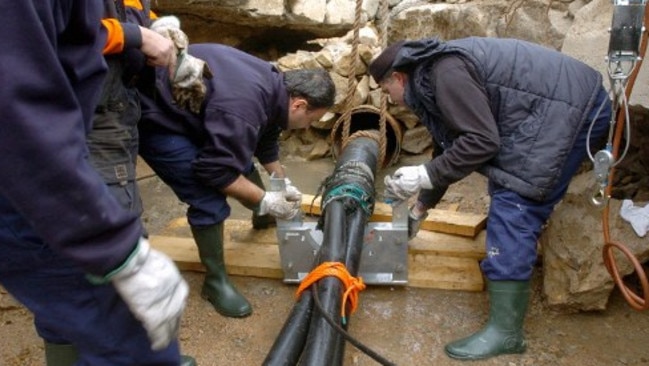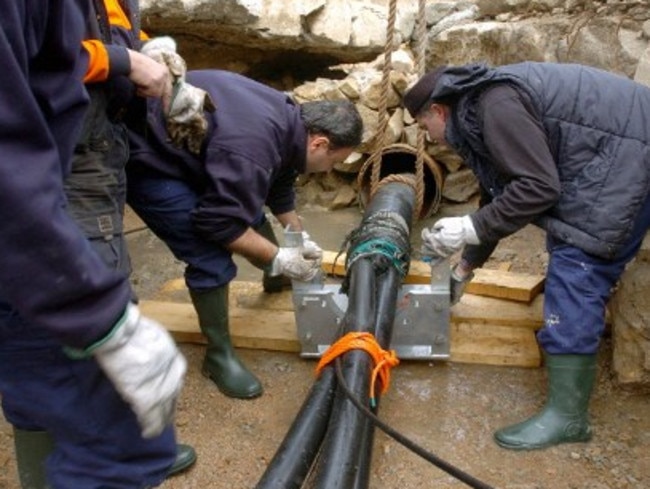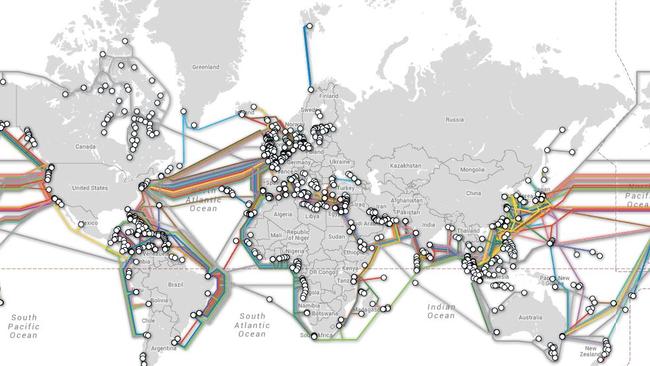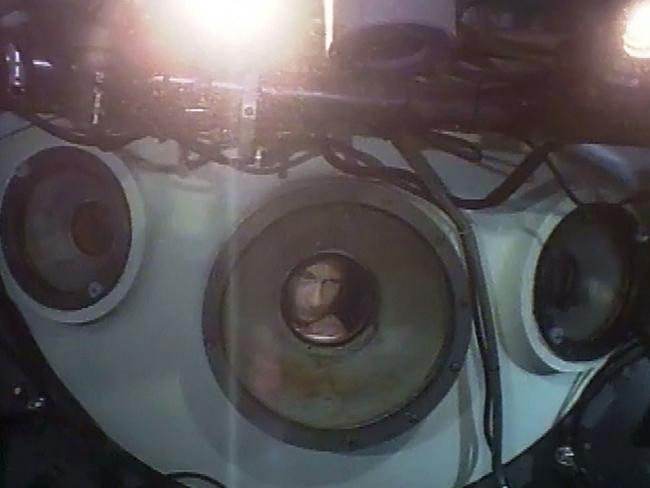Is it political posturing, or could Russia look to bring down the global internet connection?
THE US government has raised fears that in a time of conflict, Vladimir Putin could turn the lights out on the world’s internet connection.

IT SOUNDS like something Dr Evil would do in an Austin Powers movie, but the US government has legitimately raised concerns that Vladimir Putin could attempt to disrupt the world’s internet connection.
Pentagon officials are worried about the high number of Russian submarines and warships that are aggressively operating in parts of the Atlantic Ocean containing vital underwater cables that carry global internet communications.
American military officials have privately voiced fears that in a time of conflict, Russia could sever the fibre optic cables at some of the hardest-to-reach spots in order to cut of the channels of communication on which governments and economies in the West heavily rely on.
Hypothetically speaking, it was a viable threat, Dr Alexey Muraviev from Curtin University said.
Dr Muraviev is one of Australasia’s leading experts on Russia’s defence policy.
“There is truth to what the reports are saying,” he said, but added there was a huge amount of speculation.
“Certainly if we’re talking about a situation where Russia and the US slide into a serious conflict, then yes, Russia would certainly make attempts to cause maximum disruption,” he told news.com.au
Dr Muraviev doesn’t believe the Kremlin has any intention to cut the internet cables, but said the Russian government “would be on the look out” for ways to incapacitate the US in a conflict scenario.
Officials in the US have been reluctant to publicly accuse Russia of the plan, but according to a report in The New York Times, there was growing suspicion Russian submarines and surveillance ships are travelling along specific cable routes checking for weak spots.

The potential threat of a government attacking the internet cables is not a new one, but recently developed naval capabilities mean warships could become more covert.
Russia has new submarine vessels “that could give them ability to (surreptitiously) inflict damage on the cables”, Dr Muraviev said.
“Even if Russians want to cut off the internet ... they are a part of it, they would suffer from this just as much as anyone else,” he said.
“The Russians have their own internet, but they have no ambition to abandon the World Wide Web,” he said. “People in Russia would rebel.”
Reports this month in the UK’s Telegraph say Russia has been running tests.
According to the report, Andrei Semerikov, a director of a Russian service provider said the objective was to see if the Russia’s internet could continue to function in isolation from the global internet.
The experiment, denied by the Kremlin, reportedly failed because thousands of smaller service providers continued to pass information out of the country.

It is not entirely uncommon for the cables to be cut accidentally by anchors being dragged by ships or natural disasters. However these typically occur close to the shoreline and are able to be fixed within a few days.
Michael Sechrist, a former project manager at Harvard University, published a study in 2012 of the vulnerabilities of the undersea cable network and said “the risk here is that any country could cause damage to the system and do it in a way that is completely covert, without having a warship with a cable-cutting equipment right in the area.”
Such a scenario would likely prove far more disastrous for global communications.
But for the most part, Dr Muraviev views the reports as the latest tic-for-tac in the “information war” between the US and Russia. Political posturing on behalf of the Americans that is emblematic of the deteriorating relationship between the two powers.
“Both sides use the media to bad mouth each other,” he said.
Tensions between the countries have reached Cold War lows with added strain placed on the relationship due to Russia’s military intervention in Syria, he said.
Dr John Besemeres from the ANU’s Centre for European Studies said Russia’s increasingly aggressive behaviour in Ukraine and Syria, as well as earlier forays in Estonia and Georgia suggest the Kremlin might be prepared to chance their arm on almost anything at the moment.
“Sending aircraft into European spaces over and over again with their transponders turned off suggests nothing should be ruled out,” he told news.com.au
The current fears of an attack on the world’s internet expressed by the US could be just one of many going forward as Russia continue to engage in a game of political brinkmanship with the West.




